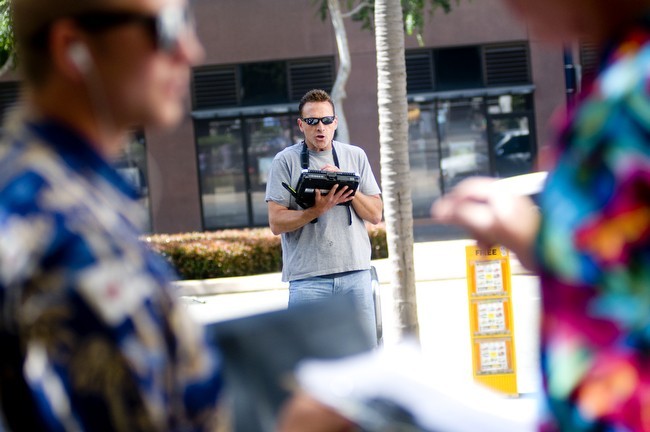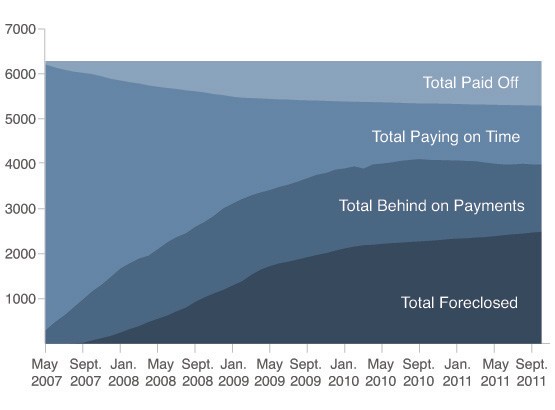Reader Story I bought a foreclosure house on the courthouse steps
Post on: 29 Сентябрь, 2015 No Comment

Modified on October 14th, 2014
This guest post is from Naomi Mannino. Naomi is a freelance consumer personal finance and health journalist who reports on health, medical and personal finance news and how it will affect your life today. You can follow Naomi on Twitter @naomimannino.
Some reader stories contain general advice; others are examples of how a GRS reader achieved financial success or failure. These stories feature folks with all levels of financial maturity and income. Want to submit your own reader story? Here’s how.
Can you really buy a house at auction on the courthouse steps for $100? Do you have to spend hundreds of thousands of dollars as the house-flipping guys do on TV?
My husband and I have just recently achieved our long-time goal of buying a foreclosed house, turning it into a rental property and creating a steady stream of income from the monthly rent we collect (at 17 percent profit on the initial cash investment every year). Its neither quick nor easy, but it is a viable investment solution if you meet the five requirements below.
I came into a small inheritance and thought hard about what to do with the money. I dont know enough about the stock market, so I stayed away from that. Then theres the low interest yet tried-and-true 5-year CD ladder I opened. But my husband and I have always wanted to buy a foreclosure on the courthouse steps and now we finally had the chance. Every county is a little different, but one thing is a constant in all foreclosure auctions: Cash is king, as certified funds are required usually within 24 hours of winning the bid and making any initial deposits required.
We are not newcomers to buying houses at a low price, renovating them over a number of years and then selling at a higher price. My husband is a carpentry contractor, skilled in all the building trades, so we do all the work ourselves. That means we can look at a property and calculate in our heads time and expenses necessary to make the house desirable and rentable. We only want houses with good bones on a nice family street. They are not large and upscale and do not require granite counter tops and stainless-steel appliances (in fact, the best place to get the best appliances for less is to buy used through Craigslist.org). We dont need to pay for inspections, surveys or other contractors unless it is for HVAC (air conditioning/heating) or septic system repair or replacement. We have learned this through small mistakes and overspending on the past five houses. Now we have a formula for choosing tile, vanities, cabinets, roof shingles, paint colors, and carpet because we have done this all before and know what works. If you have to hire contractors, you will pay twice as much or more for the entire renovation. (Foreclosure homes are usually severely neglected, if not destroyed, and need a lot of renovation.)
In terms of the foreclosure auction itself, we had no experience, so we agreed we should attend many auctions and just watch how it works, learn what the rules are and who the major players are in our small county. Every county has seasoned investors who know exactly what they are doing, and it pays to watch and learn from them. I have learned to stay away from the big city auctions with deep-pocketed investor groups who buy up tons of houses, because you really cant win a bid against them. In my small county, where you can pick up a 1,000-square-foot 2- or 3-bedroom house for $20,000 to $40,000 to flip or to hold and rent, there are just five regular investors plus us, all with different interests and focus areas.
3. You need to research, research, research.
Our county publishes a twice-weekly list of the properties to be sold at the foreclosure auction held each Tuesday and Thursday at 11 a.m. A large portion of our time each week is spent physically viewing the properties and researching them online or in the courthouse books. We never skip these steps.
After you identify a few houses in your chosen location or size range, research each offered propertys sales and tax history , as well as its current assessed value on the County Property Appraisers website, which are all public record. Note these details for the properties in which you are interested.
Next, research each property owner (also listed on the County Appraisers property record page) online via the County Clerk of Courts Public Record Search because whatever that the owner owes regarding that property outside of the loans (liens, back taxes, etc.), you will owe when you purchase a foreclosure home.
Finally, physically go and see each home you might be interested in (we never buy a property sight-unseen.) Weve made the decision to stick to houses in our city proper so we are intimately familiar with the neighborhoods, not traveling more than a seven-mile radius from our home. We create a map of five or so houses that suit our specific purposes, and then we use our smartphone navigation to get us from house to house. From the outside, you can see the state of the roof, house structure, land, doors and windows and can look inside through any clear windows. Many times houses are so distressed they are open, in which case we can identify pros and cons regarding the inside: kitchens, bathrooms, flooring, lighting, air handler, walls and ceilings (but you didnt hear that from me!). Bring a flashlight.
4. You need to know the opening bid.
People get the idea they can buy a house at auction for $100 because they have heard that someone bid on behalf of the plaintiff (the bank) for $100. But auction buyers cannot counter the bank bid at $150 dollars. Instead, you need to start the bidding at the acceptable opening bid amount for each property, which is the lowest amount the bank is willing to accept for a property at the auction that day. And you can get this number by simply asking the bank reps, who are all at the sale. Getting to know these guys and gals on a first-name basis makes things even easier. Once you hear this number you will need to evaluate on the spot whether purchasing the property is financially feasible given your cash budget, current market conditions, the research you did on the property and your personal criteria and plan for the investment.

Just because the property is offered for sale at public auction doesnt always mean its a good deal. Often, the opening bid equals the judgment amount (the money the bank is trying to recover) or more and includes the original purchase price or mortgage plus a second mortgage, other home equity loans, interest and legal fees. The opening bid is ridiculously high compared with its current assessed value. These high-priced properties revert back to the bank because nobody bids on them. What you are looking for is an opening bid way below the current assessed value, and these are few and far between.
We can afford to bid a couple of thousand higher than a flipper an investor who plans to renovate and sell quickly, who needs every bit of profit he can muster out of each house now. I was told thats how we won our first bid later by the flipper bidding against us.
Make sure you arrive early enough on auction day to go to the correct county courthouse office to register as a bidder and receive your bidders number card. Leave time to approach each bank rep for the opening bid necessary for properties you might want.
When the auctioneer (the county courthouse employee whose job it is to administer the weekly foreclosure sale) arrives at the sale site, he or she will announce some specific rules about deposits for a winning bid. Then things move quickly. When the auctioneer announces a property (by case number, not by address) you want to bid on, hold up your bidders card and announce your opening bid. The auctioneer will repeat it and then open it to other bidders to counter. I learned from a very seasoned investor to only raise the bid by $50 each time. He says, Theres no sense in bidding it up for myself or the other guy by going hundreds or thousands at a time. I work too hard for my money. Always have a ceiling in mind, and stick to it. If it goes higher, drop out.
After lurking on the edge of the auctions for about two months, we were finally ready to jump in with both feet. We got a bidder’s card, talked to the bank reps and found out that one house we saw and researched had an opening bid within our budget and under the assessed value of the home so we bid on it! Two other investors counter-bid a few times, but we won the bid and got our first house at the foreclosure auction.
But I must warn you: The fast pace of the auction and hopeful thoughts of steady, slow investment income can be addicting despite all the work involved! Any questions? Have you ever participated in a property auction?
Reminder: This is a story from one of your fellow readers. Please be nice. It can be scary to put your story out in public for the first time. Remember that this guest author isnt a professional writer, and is just learning about money like you are. Unduly nasty comments on readers stories will be removed.
GRS is committed to helping our readers save and achieve their financial goals. Savings interest rates may be low, but that is all the more reason to shop for the best rate. Find the highest savings interest rates and CD rates from Synchrony Bank. Ally Bank. GE Capital Bank. and more.














